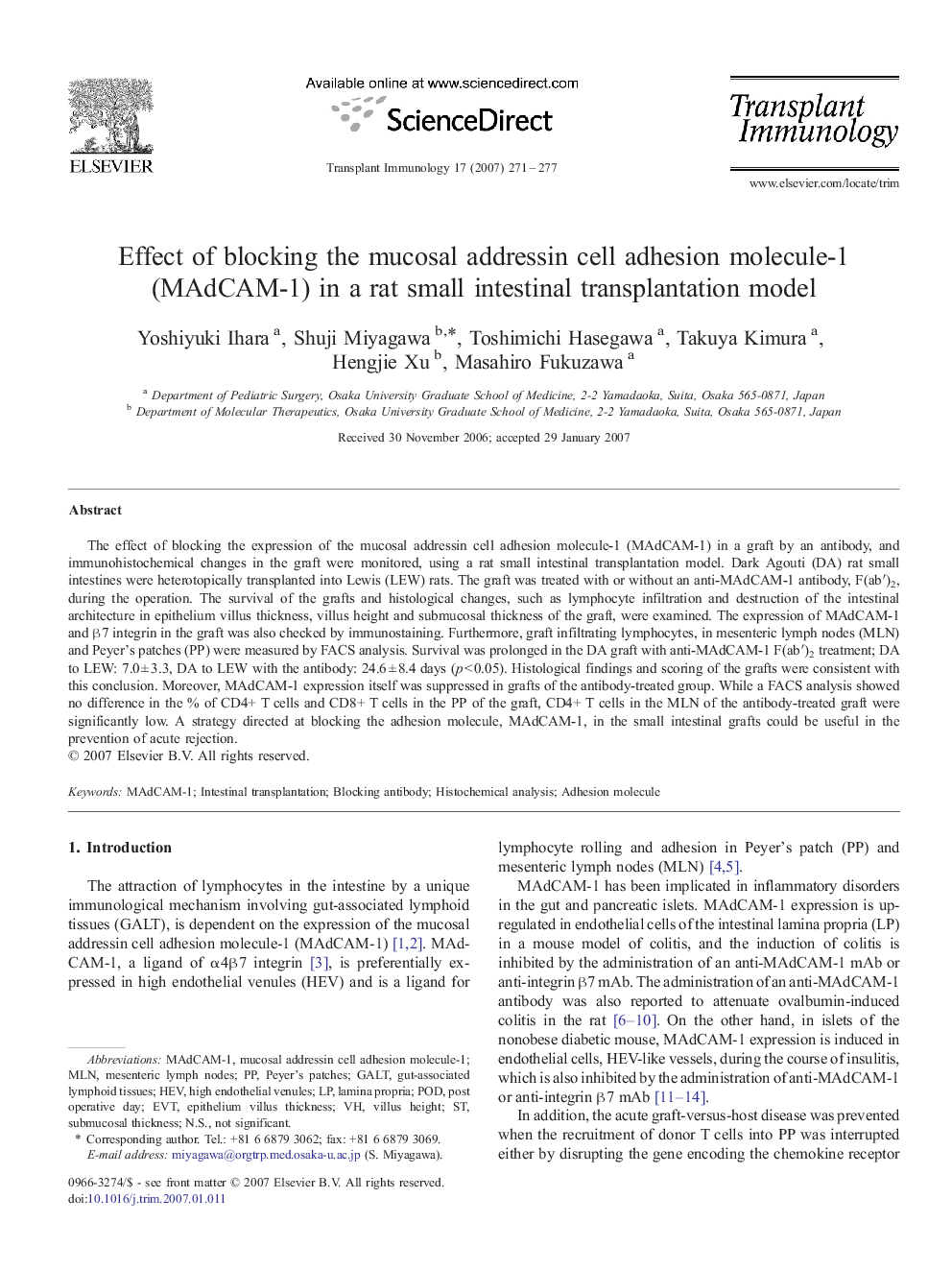| Article ID | Journal | Published Year | Pages | File Type |
|---|---|---|---|---|
| 3392532 | Transplant Immunology | 2007 | 7 Pages |
Abstract
The effect of blocking the expression of the mucosal addressin cell adhesion molecule-1 (MAdCAM-1) in a graft by an antibody, and immunohistochemical changes in the graft were monitored, using a rat small intestinal transplantation model. Dark Agouti (DA) rat small intestines were heterotopically transplanted into Lewis (LEW) rats. The graft was treated with or without an anti-MAdCAM-1 antibody, F(abâ²)2, during the operation. The survival of the grafts and histological changes, such as lymphocyte infiltration and destruction of the intestinal architecture in epithelium villus thickness, villus height and submucosal thickness of the graft, were examined. The expression of MAdCAM-1 and β7 integrin in the graft was also checked by immunostaining. Furthermore, graft infiltrating lymphocytes, in mesenteric lymph nodes (MLN) and Peyer's patches (PP) were measured by FACS analysis. Survival was prolonged in the DA graft with anti-MAdCAM-1 F(abâ²)2 treatment; DA to LEW: 7.0 ± 3.3, DA to LEW with the antibody: 24.6 ± 8.4 days (p < 0.05). Histological findings and scoring of the grafts were consistent with this conclusion. Moreover, MAdCAM-1 expression itself was suppressed in grafts of the antibody-treated group. While a FACS analysis showed no difference in the % of CD4+ T cells and CD8+ T cells in the PP of the graft, CD4+ T cells in the MLN of the antibody-treated graft were significantly low. A strategy directed at blocking the adhesion molecule, MAdCAM-1, in the small intestinal grafts could be useful in the prevention of acute rejection.
Keywords
Related Topics
Life Sciences
Immunology and Microbiology
Immunology
Authors
Yoshiyuki Ihara, Shuji Miyagawa, Toshimichi Hasegawa, Takuya Kimura, Hengjie Xu, Masahiro Fukuzawa,
